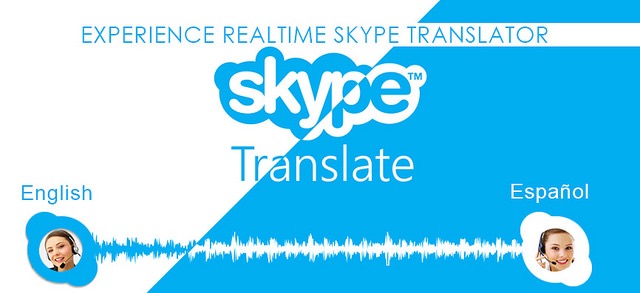Google Translate has been helping English and non-English speakers and writers translate languages beyond their comprehension, sometimes to much disappointment for the bad translation it gives. Here comes Skype Translator, which is a seemingly much better replacement for the sometimes inaccurate and awkward Google competitor.
Skype Translator, the precursor of the future of computer generated translation, seems poised to take on Google Translate, what with its uncanny clarity and close to human intelligence accuracy. Google has every reason, then, to feel alarmed at Microsoft’s new update to Skype, which the software giant acquired in 2011.
Based on initial testing of the new feature, Skype Translator nearly mimics the performance of an actual professional translator, edging Google Translate out of its own turf.

Some have raised skepticism over the service’s accuracy when unwanted voices and noise start muddling the conversation between two speakers of different languages. They argue that Skype Translator will have a hard time distinguishing those voices, and in the process, lose track of what to translate and what to exclude. But initial tests show that this is not going to be the case. Nonetheless, Skype Translator has certain limitations, being a machine only, without cognitive abilities like those of humans.
But Skype Translator has been released to rave reviews, further raising the alarm for Google Translate. I’ve personally tried Google Translate many times, whether translating English to my vernacular and vice versa, though I never actually used the result. Oftentimes I am disappointed at the poor translation it gives. Unreliable. The service has been in existence for many years now, and it is a wonder why, despite all the updates Google slapped into it, the service still does not get it right.
With Skype’s interpretation service, you have a higher chance of getting more accurate results. That is so because Skype Translator has been developed based on the neural research and linguistic works of the team at Microsoft that created the system.
Beyond literal translations, Microsoft also plans to attune the service for idioms, slangs, euphemisms, proper names, and abbreviations that will be gathered from conventional speeches. As of now, the service’s performance is impressive, given that a team consisting of Microsoft’s groups that developed its virtual personal assistant, standalone translation app, and Word’s grammar rule helped to improve the service over years of intensive work, thanks to Microsoft’s investment.
But there’s one area that Microsoft has to work hard on, which is expanding the user base of Skype.
Disclosure: We might earn commission from qualifying purchases. The commission help keep the rest of my content free, so thank you!



